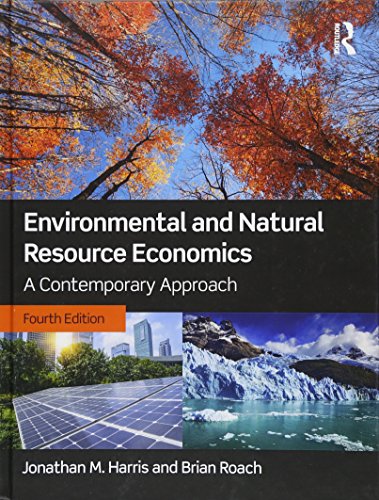

Most ebook files are in PDF format, so you can easily read them using various software such as Foxit Reader or directly on the Google Chrome browser.
Some ebook files are released by publishers in other formats such as .awz, .mobi, .epub, .fb2, etc. You may need to install specific software to read these formats on mobile/PC, such as Calibre.
Please read the tutorial at this link: https://ebookbell.com/faq
We offer FREE conversion to the popular formats you request; however, this may take some time. Therefore, right after payment, please email us, and we will try to provide the service as quickly as possible.
For some exceptional file formats or broken links (if any), please refrain from opening any disputes. Instead, email us first, and we will try to assist within a maximum of 6 hours.
EbookBell Team

4.8
94 reviewsEnvironmental issues are of fundamental importance, and a broad approach to understanding the relationship of the human economy and the natural world is essential. In a rapidly changing policy and scientific context, this new edition of Environmental and Natural Resource Economics reflects an updated perspective on modern environmental topics.
Now in its fourth edition, this book includes new material on climate change, the cost-competitiveness of renewable energy, global environmental trends, and sustainable economies. The text provides a balanced treatment of both standard environmental economics and ecological economics, based on the belief that these two approaches are complementary. Several chapters focus on the core concepts of environmental economics, including the theory of externalities, the management of public goods, the allocation of resources across time, environmental valuation, and cost-benefit analysis. Material on ecological economics includes such topics as macroeconomic scale, entropy, and "green" national accounting. Topical chapters focus on: energy; climate change; water resources; international trade; forests; fisheries; and agriculture, with an emphasis on designing effective policies to promote sustainability and a "green" economy.
Harris and Roach’s premise is that a pluralistic approach is essential to understand the complex nexus between the economy and the environment. This perspective, combined with its emphasis on real-world policies, is particularly appealing to both instructors and students. This is the ideal text for classes on environmental, natural resource, and ecological economics.